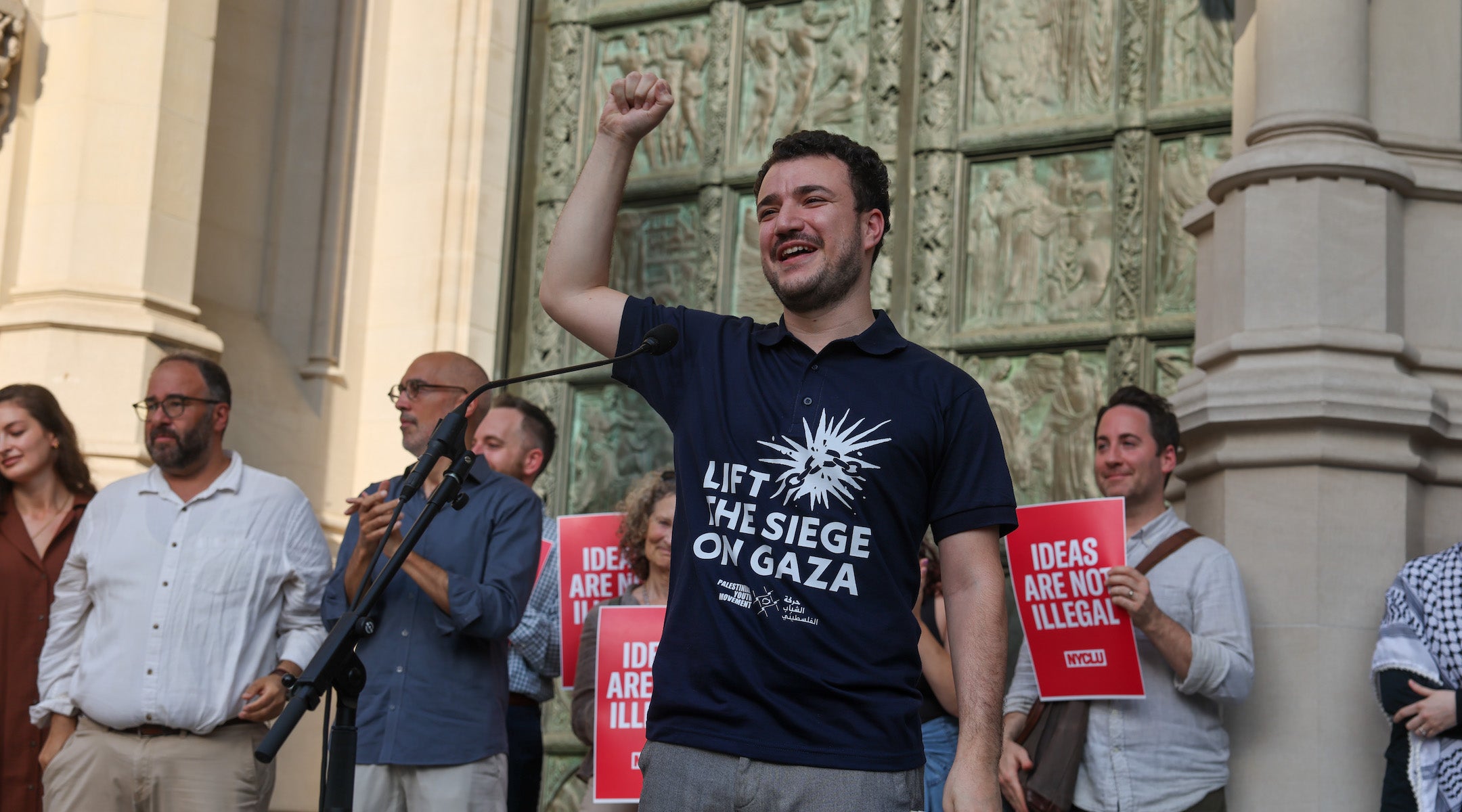In first interview since release from federal detention, Mahmoud Khalil says detainment ‘felt like kidnapping’
“Mahmoud Khalil is a human rights defender. Mahmoud Khalil is a freedom fighter,” said Khalil in an address Sunday

Palestinian activist Mahmoud Khalil, who was released from ICE detention, speaks during a rally on the steps of the Cathedral of St. John the Divine in Manhattan on June 22, 2025 in New York City. (Spencer Platt/Getty Images)
(JTA) — In his first interview since being released from federal detention Friday, pro-Palestinian student protester Mahmoud Khalil told the New York Times that his three-month detention “felt like a kidnapping.”
“All the ‘Know Your Rights’ information and fliers I read and familiarized myself with were useless,” Mr. Khalil told the Times. “There are no rights in such situations.”
“It felt like kidnapping,” he added.
Khalil, a 30-year-old Columbia University graduate and permanent U.S. resident, was the first student pro-Palestinian protest leader to be detained by the Trump administration amid their campaign to deport non-citizen protest leaders who they accused of fueling antisemitism on college campuses.
Khalil was ordered to be released from detention on a $1 bond earlier this month by a federal judge who decreed that he could not be detained or deported.
In an address to a crowd of supporters Sunday in New York, Khalil described himself as a “freedom fighter” to a roar of applause and drum beats.
“Who is Mahmoud Khalil?” Khalil asked the crowd gathered at the Cathedral of St. John the Divine in New York City, which is near Columbia University’s campus.
“Mahmoud Khalil is a human rights defender. Mahmoud Khalil is a freedom fighter. Mahmoud Khalil is a refugee. Mahmoud Khalil is a father and husband. And, above all, Mahmoud Khalil is Palestinian,” he continued.
Khalil’s release was supported widely following his detainment, including by some Jewish groups and leaders who, despite their criticism of his campus activism, questioned whether the administration was using the fight against antisemitism as a pretext to crack down on immigrants and foreign students.
In his address, Khalil also described the conditions he faced in the ICE detention center in Louisiana where he had been held for three months and decried the “hypocrisy” of his alma mater.
“It’s often hard to find patience in ICE detention. The center is crowded with hundreds of people who are told that their existence is illegal, and not one of us knows when we can go free,” Khalil said.
“I must call the hypocrisy of Columbia University, a university that just two weeks ago said that they want to protect their international students. Why? While over 100 [days] later, I haven’t received a single call from this university,” Khalil continued.
Last week, the Columbia University Task Force on Antisemitism, formed amid the turmoil over pro-Palestinian protests on campus, found that nearly two thirds of Jewish students at the university reported not feeling accepted for their religious identity during the school year that included Hamas’ attack on Israel, compared to 15% of students overall, according to a report released this week.
Just over half of Muslim students reported frequently feeling not accepted over their identity — fewer than Jewish students, but far more than in the overall student population.













